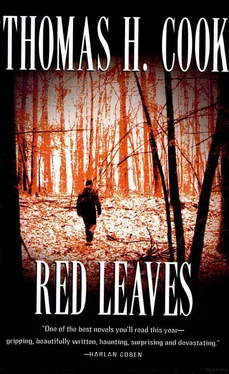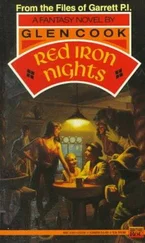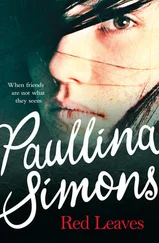She was in her early seventies and had been a regular customer since the shop opened. She had white or bluish hair, depending upon the competence of the beauty salon, and her teeth were false and thus unnaturally even and a bit too large for her mouth. She never came into the shop in anything but dressy clothes, usually with a silk scarf around her neck, her face fully made up down to the eye shadow.
She came into the store at just after ten. Neil was at the front counter, and she stopped to chat with him in that amiable way of hers. "Neil's very nice," she once said to me. But then, so was almost everyone, according to Mrs. Phelps. Her gardener was nice, for example, as was the Ecuadorian woman who cleaned her house. Summer was nice, but so were spring and fall. She'd never made particular mention of winter, but I had no doubt she could find some aspect of it that was nice, too.
She had come to pick up the large photograph of her granddaughter that she'd left for me to frame the preceding weekend, and the minute she came through the door I remembered that it wasn't ready. I'd begun framing it before closing on Saturday, and Neil had quite correctly taken the frame and photograph and placed them safely beneath the counter, where they'd remained, completely forgotten until now.
"I'm sorry, Mrs. Phelps," I said when she walked up to the counter. "I haven't finished the picture yet. I can have it for you later today."
Mrs. Phelps smiled and waved her hand. "Oh, don't worry, Eric," she said. "I'll come back for it later."
"No, no," I said. "Its my fault for not having it ready. When Keith gets here, I'll have him deliver it to you."
That's when I noticed an uneasy glimmer in Mrs. Phelps's eyes, a sudden, not very subtle wariness. I also knew the reason for it. Mrs. Phelps's granddaughter, the little girl in the photograph I had not yet framed, was staying with her. She was pretty, with long dark hair, and looked to be around eight years old, the same age and general appearance as Amy Giordano.
"Oh, you don't have to put Keith to that trouble," Mrs. Phelps said. "I'll drop by later this afternoon." Her voice remained kindly and accommodating, a nice woman being nice, but there was a firmness in it, too, a clear refusal to allow my son ever to come near her granddaughter. I thought of the whales I'd read about, how the mother whale will place her vast bulk between the harpoon and her offspring. Mrs. Phelps was doing no more than that, protecting her granddaughter from the dark potential of my son.
"All right," I said quietly. "If that's what you'd prefer."
"Yes, thank you," Mrs. Phelps said politely. She took a step backward, her gaze now fleeing to any available object, the smile still on her face, but lifeless, frozen. She was embarrassed by what she'd just done but unwilling to take it back. After all, she must have thought, her granddaughter's safety was at stake.
"Around four then," I said.
Mrs. Phelps nodded, turned, and walked rather hurriedly toward the door. She swept by Neil without nodding good-bye, and by the time she made it to the sidewalk I had the feeling that she was very nearly out of breath.
"Jesus," Neil said to me. "That was weird."
I stared out the front window, watching as Mrs. Phelps walked to her car and got in. "I don't think Keith should make deliveries anymore," I said.
"It's just awful," Neil said. "Whatever happened to innocent until proven guilty? And Mrs. Phelps, of all people. So nice, and all that, but..."
"It's fear," I told him, though until that moment I hadn't realized to what degree suspicion was a form of fear. "She's afraid of Keith. It's natural, I guess."
"But there's no reason for her to be afraid of Keith," Neil said.
I recalled the terrible vision I'd had a few days before, Keith moving down the shadowy corridor toward Amy's room. It was all I could do to keep from blurting the thought that came to me at that moment, Dear God, I hope you're right.
Neil seemed almost to have heard the grim prayer I'd managed not to utter.
"Keith couldn't have done anything to that little girl, Eric," he said emphatically. "He didn't have a car. Whoever took her, he had to have had a car. You don't just take a child from her house and walk away."
I saw the twin beams of a car once again sweep across the undergrowth. "I know."
A stream of images sped through my mind, Keith slouching down the walkway, brushing past the low-slung limbs of the Japanese maple at its far end, moving stealthily up the stairs. I recalled the way he'd frozen at the sound of my voice, then stood facing the door, his rumpled shirttail hanging halfway outside his pants. For an instant, the thought of why his shirt had been pulled from his trousers was almost more than I could bear.
Neil touched my arm softly. "Believe me, Eric, Keith's not a..." He stopped, considered his words, then said, "Keith wouldn't ... hurt a little girl."
I nodded silently because there seemed nothing else to do, no words I could safely say. Then I went back to work. I framed Mrs. Phelps's photograph, then another and another as the hours passed and customers came and went, sometimes glancing in my direction, sometimes avoiding me altogether, both of which I found uncomfortable. It was a form of discomfort I didn't want Keith to experience, I decided, so at noon I called Meredith and told her that I thought it best that Keith go directly home after school until the matter of Amy Giordano was settled.
"I don't want him being looked at the way people are looking at me," I said. "Like an animal in the zoo."
"Of course," Meredith agreed. "Besides, with him the look would be even worse."
"What do you mean?"
Her answer chilled me with its unflinching starkness. "Like the cage door is unlocked," she said.
Warren arrived just as I was closing. He was dressed in coveralls, white cotton, dotted with paint. Bits of dried paint also clung to the wispy orange strands of his hair and dotted his hands and lower arms.
"Thought we might grab a beer, Bro," he said.
I shook my head tiredly. "It's been a long day, Warren. I think I'll just head home."
Neil swept by, said hello to Warren, then made his way toward the old green Dodge he'd more or less inherited from his mother.
Warren laughed. "Jesus, what a pansy," he said. He looked at me, the smile now gone. "I'd really like to have a beer, Eric." He didn't wait for me to refuse a second time. "The cops came by this house I was working on. Earl Bannister's place. They came right up to Earl and asked for me. Two cops. The ones that talked to you, I guess."
"Peak and Kraus."
"Sounds right," Warren said. "Anyway, that's not good, them coming up to Earl that way. I can't have cops coming around, asking for me while I'm on a job. Asking questions. Making it look like I'm ... involved in something." His tone grew more tense and even a little resentful that he'd been drawn into circumstances he had not created but now knew no way to avoid. "I'm a housepainter, for Christ's sake. In and out of people's houses. You got to be trusted in this business, not be on the job and a couple of cops show up." His face reddened slightly. "It's got to stop, Eric," he said with sudden urgency. "I mean, I can't let this go on. We have to talk about it, you know?"
He was working himself up, getting more and more agitated. It was one of Warren's traits, a continual escalation until his emotions peaked and he either started sobbing, as he did when he was drunk, or fell asleep, as he did when he was sober.
"All right," I said. "Let's go over to Teddy's."
Teddy's was a small bar just a few doors down from my shop. Teddy Bethune, the owner, had died several years before, so that it was now run by his middle-aged daughter, a frowsy, irritable woman who had never made a secret of the fact that she actually preferred tourists to the boozy regulars who liked to sing old Irish songs, tell dirty jokes, and who continually regaled her with tales of how much more fun the bar had been before her father died.
Читать дальше












